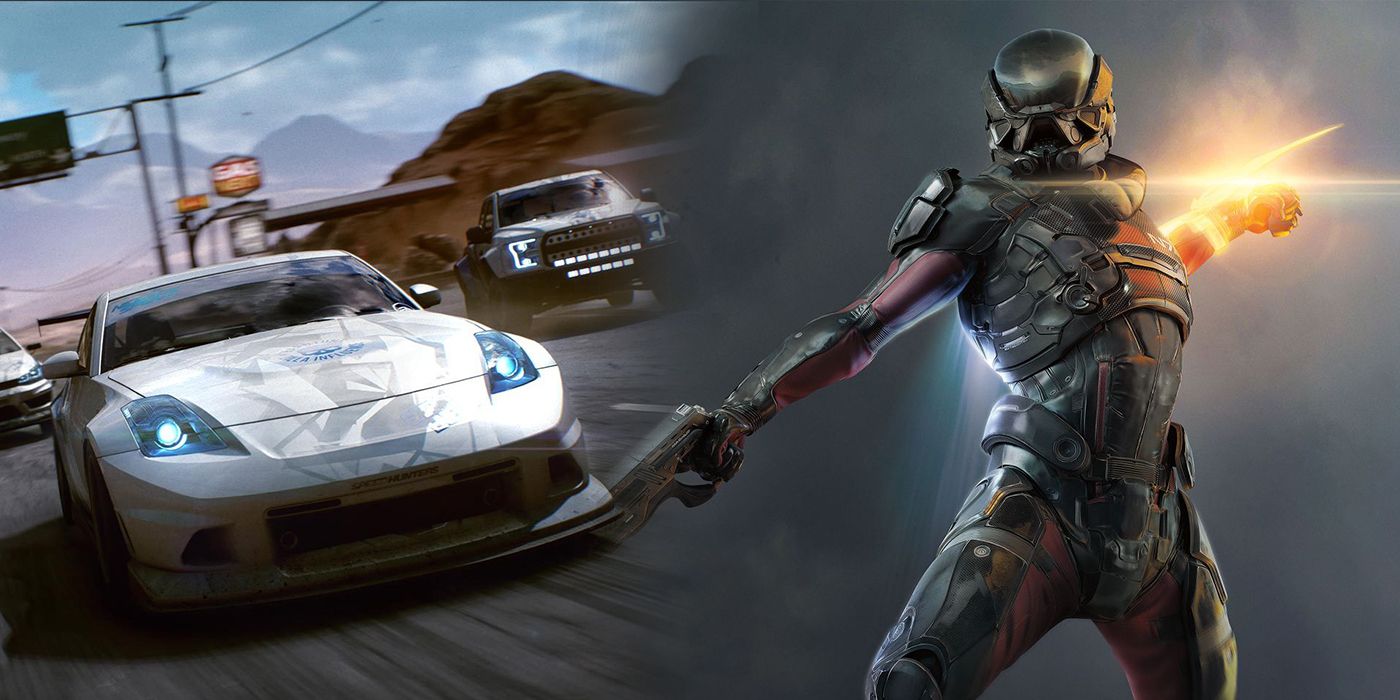2017 was all set to be a year to remember for Electronic Arts. The publisher was bringing back a number of beloved franchises over the course of the year, with releases such as Star Wars: Battlefront II alongside staple sports launches such as FIFA 18, UFC 3, and Madden NFL 18. However, the end result was far from what EA would have been hoping for, with the publisher's games remembered far more for disappointments and controversy than for quality.Although Star Wars: Battlefront II has been getting the headlines, thanks to a loot box business model that had such a poor reception that it tanked EA's stock value, it's not the only disastrous release that EA has had on its hands this year. Instead, that honor also goes to the latest game in the Need For Speed franchise: Need For Speed: Payback.Related: The Video Game Loot Box Problem Goes Deeper Than Star Wars: Battlefront IIThe Need For Speed series has a long and acclaimed history in the video game medium. The original game's 3DO launch in 1994, and particularly the subsequent releases for MS-DOS and other come consoles in the following years, offered up a refreshing and thrilling racing experience for players, marrying together great street racing with the thrill of escaping from the authorities. EA had struck gold.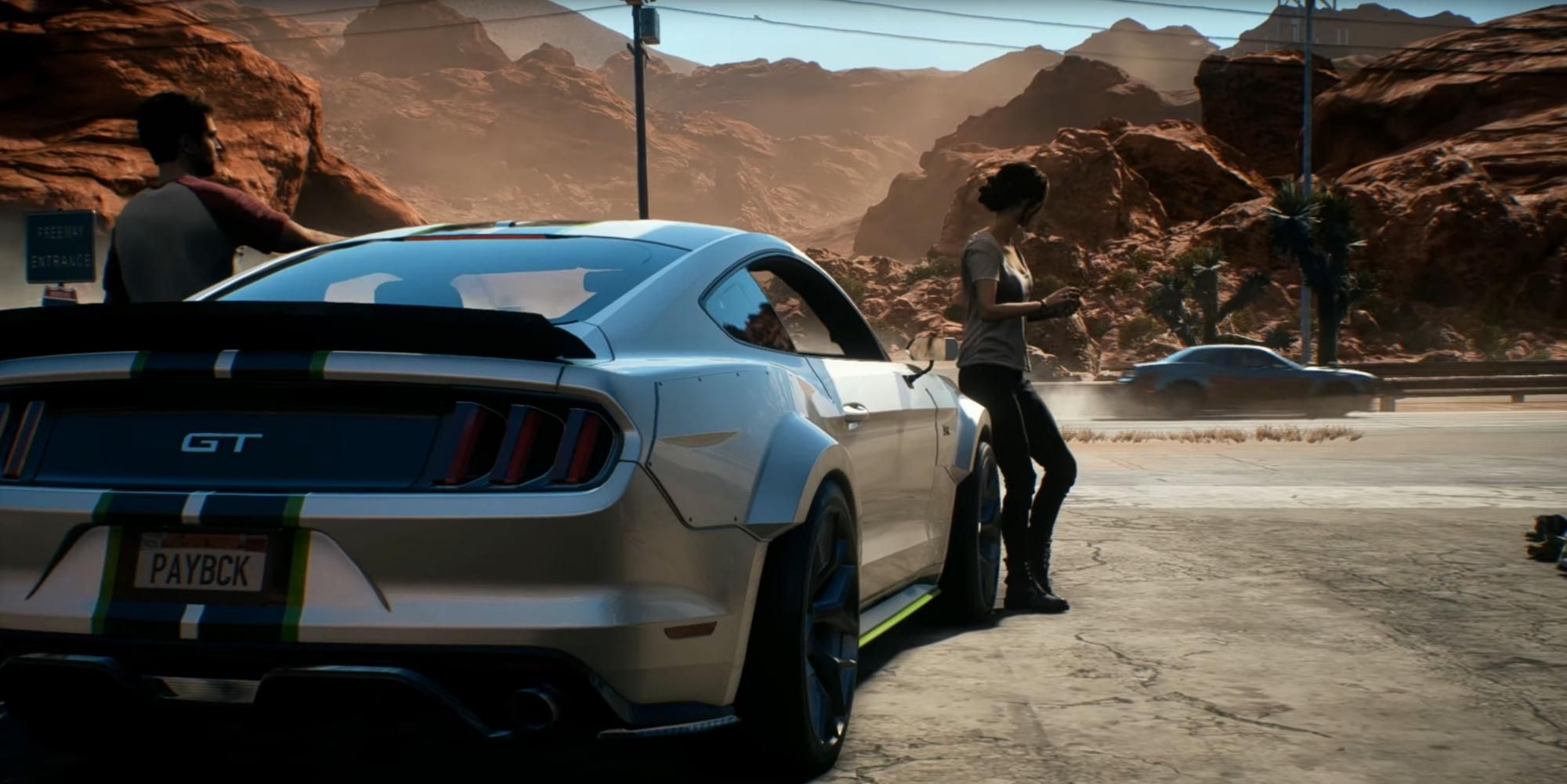 From then on, Need For Speed solidified its place as one of the most important racing game series, particularly through the first few titles developed by EA Black Box. Games such as Hot Pursuit 2 and the Need For Speed: Underground duo were hugely influential in the PS2 era, earning positive reviews and armies of fans. However, a few missteps along the way and an awkward always online 2015 reboot left a lot resting on Need For Speed: Payback.Unfortunately, the game was also marred by a bizarre design choice that stifled the game's potential. Rather than an always online requirement, however, Need For Speed: Payback's progression system was not just irritating, but instead entirely broke the way that the game functioned.Quite simply, Need For Speed: Payback's level up system is more akin to a freemium game than what would be expected of a top tier title from a major publisher. Although Need For Speed: Payback is chock full of content, a lot of it is fenced off from the player unless they have built their garage up to a respectable level to compete with rival drivers. Getting this level up system going fluidly, however, is easier said than done.Related: 15 Worst Sequels To Classic Video GamesThis is because Need For Speed: Payback's progression is effectively built around loot boxes. Players are left either spending real world cash, clocking hours into the game to get an entirely new car, or completing an arduous grind to unlock Speed Cards from events, which then randomly upgrade an aspect of the player's car. It's tedious and completely takes autonomy out of the player's hands, which leads to an extremely frustrating experience overall.
From then on, Need For Speed solidified its place as one of the most important racing game series, particularly through the first few titles developed by EA Black Box. Games such as Hot Pursuit 2 and the Need For Speed: Underground duo were hugely influential in the PS2 era, earning positive reviews and armies of fans. However, a few missteps along the way and an awkward always online 2015 reboot left a lot resting on Need For Speed: Payback.Unfortunately, the game was also marred by a bizarre design choice that stifled the game's potential. Rather than an always online requirement, however, Need For Speed: Payback's progression system was not just irritating, but instead entirely broke the way that the game functioned.Quite simply, Need For Speed: Payback's level up system is more akin to a freemium game than what would be expected of a top tier title from a major publisher. Although Need For Speed: Payback is chock full of content, a lot of it is fenced off from the player unless they have built their garage up to a respectable level to compete with rival drivers. Getting this level up system going fluidly, however, is easier said than done.Related: 15 Worst Sequels To Classic Video GamesThis is because Need For Speed: Payback's progression is effectively built around loot boxes. Players are left either spending real world cash, clocking hours into the game to get an entirely new car, or completing an arduous grind to unlock Speed Cards from events, which then randomly upgrade an aspect of the player's car. It's tedious and completely takes autonomy out of the player's hands, which leads to an extremely frustrating experience overall.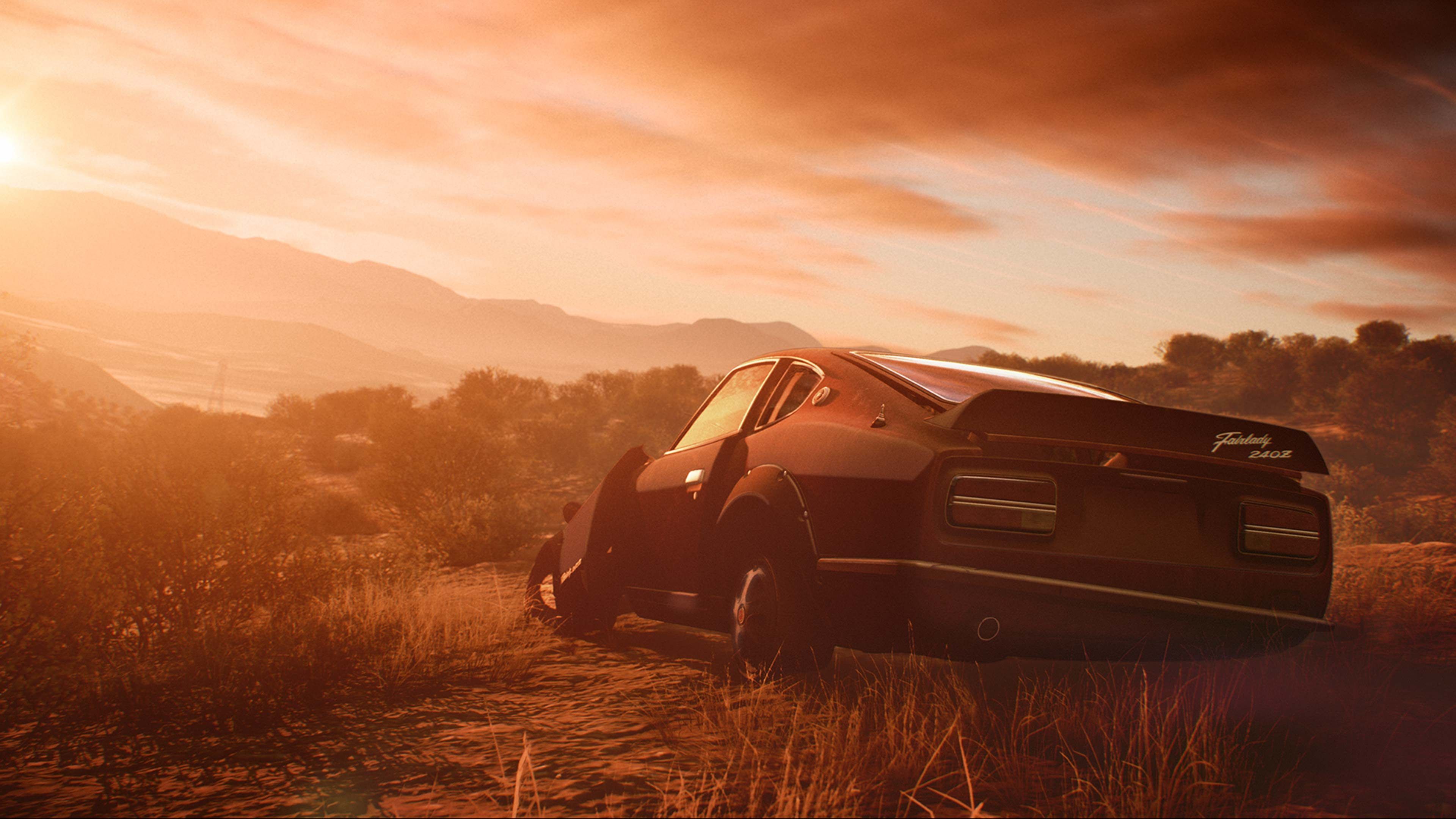 It's not the only time that a Need For Speed game has tried a model that tempts players into spending money to save time. Mobile game Need For Speed: No Limits timegated races for 'refueling' for instance, in a move that was roundly criticized at the time of its release in 2015. However, Payback's position as a full retail release - and the expectations that came with it - resulted in a game-ruining mechanic that proved hugely unpopular.At the end of the day, Payback's loot box model effectively allows (and tempts) players to skip over gameplay in order to progress through the game. At its core, Payback is suggesting that the grind of unlocking these Speed Cards the legitimate way is pointless and - even worse - boring. In order to have fun, users are meant to avoid playing large portions of the game.EA and developer Ghost Games introduced an update that increased the amount of experience players received for completing events, but by that point the damage had already been done. Even with the changes to make the game less of a chore to complete, Payback's place in 2017 had already been given: a failed attempt to implement a potentially dangerous additional business model into the industry.Related: The Death and Rebirth of Single Player Games In 2017The most frustrating thing is that, hidden deep down, Payback is a solid racing game that addressed at least some of the issues from its 2015 predecessor. However, the game's flaws are impossible to overlook, and a racing game should never be anything other than an adrenaline-filled thrill to play. What's worse, Payback may have been the death knell of the Need For Speed franchise as a whole.
It's not the only time that a Need For Speed game has tried a model that tempts players into spending money to save time. Mobile game Need For Speed: No Limits timegated races for 'refueling' for instance, in a move that was roundly criticized at the time of its release in 2015. However, Payback's position as a full retail release - and the expectations that came with it - resulted in a game-ruining mechanic that proved hugely unpopular.At the end of the day, Payback's loot box model effectively allows (and tempts) players to skip over gameplay in order to progress through the game. At its core, Payback is suggesting that the grind of unlocking these Speed Cards the legitimate way is pointless and - even worse - boring. In order to have fun, users are meant to avoid playing large portions of the game.EA and developer Ghost Games introduced an update that increased the amount of experience players received for completing events, but by that point the damage had already been done. Even with the changes to make the game less of a chore to complete, Payback's place in 2017 had already been given: a failed attempt to implement a potentially dangerous additional business model into the industry.Related: The Death and Rebirth of Single Player Games In 2017The most frustrating thing is that, hidden deep down, Payback is a solid racing game that addressed at least some of the issues from its 2015 predecessor. However, the game's flaws are impossible to overlook, and a racing game should never be anything other than an adrenaline-filled thrill to play. What's worse, Payback may have been the death knell of the Need For Speed franchise as a whole.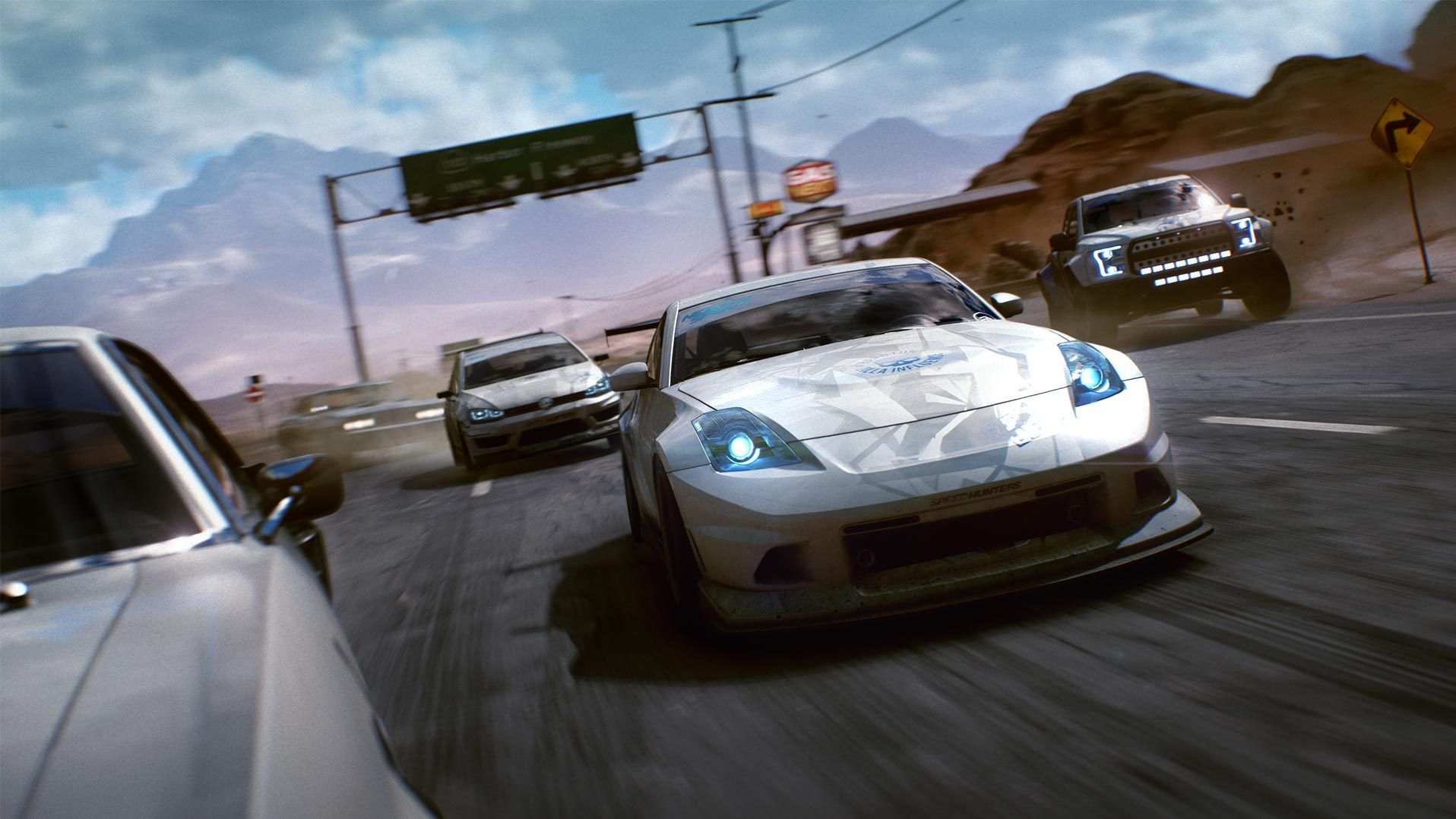 Up next for Need For Speed is a free-to-play MMO called Need For Speed: Edge, but it's far from a franchise-defining moment, instead sitting closer to other EA free-to-play spin-offs such as FIFA World. On top of that, Need For Speed's previous foray into the world of the MMO, Need For Speed: Online, was hardly a cause for celebration and never gained the level of popularity that EA expected.To make matters worse, EA rarely lets franchises continue once a trend of disappointing releases is reached. One such example is the Medal of Honor series, where a push to bring the previously Second World War-focused property into the modern day resulted in two mediocre games before being unceremoniously dumped, with no releases in the franchise since 2012. At the moment, Need For Speed's only saving grace is the lack of another big name racing property on EA's books, but the publisher's move to close down Visceral and shift the development of a Star Wars game shows that there's only so far an established franchise can go.
Up next for Need For Speed is a free-to-play MMO called Need For Speed: Edge, but it's far from a franchise-defining moment, instead sitting closer to other EA free-to-play spin-offs such as FIFA World. On top of that, Need For Speed's previous foray into the world of the MMO, Need For Speed: Online, was hardly a cause for celebration and never gained the level of popularity that EA expected.To make matters worse, EA rarely lets franchises continue once a trend of disappointing releases is reached. One such example is the Medal of Honor series, where a push to bring the previously Second World War-focused property into the modern day resulted in two mediocre games before being unceremoniously dumped, with no releases in the franchise since 2012. At the moment, Need For Speed's only saving grace is the lack of another big name racing property on EA's books, but the publisher's move to close down Visceral and shift the development of a Star Wars game shows that there's only so far an established franchise can go.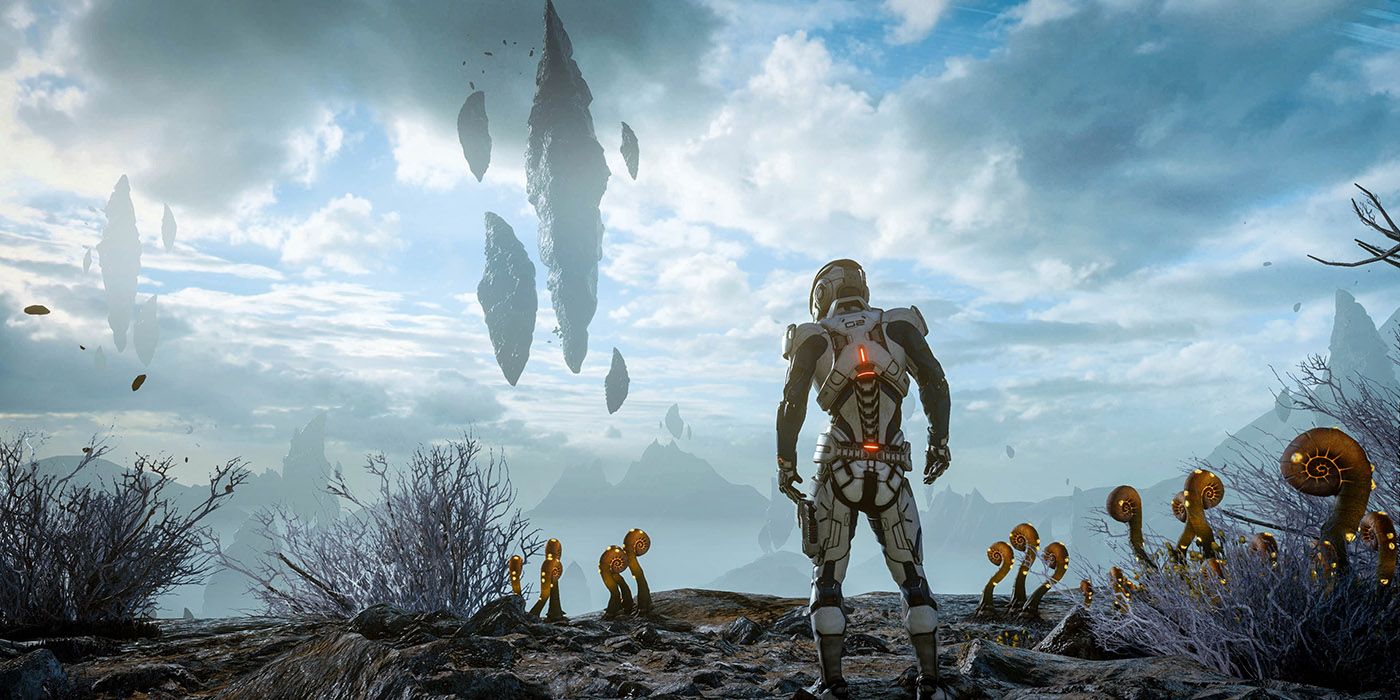 If there's one other positive to be found with the release of Need For Speed: Payback, it's that it's managed to further bury another unpopular release that EA published this year. Mass Effect: Andromeda was one of the most highly anticipated games of 2017, bringing with it the promise of taking the space opera into a whole new galaxy and with the unbound potential that came with it. Unfortunately, Mass Effect: Andromeda failed to live up to the expectations set of it.Instead, the game's legacy is one of disappointment. From a technical perspective, Andromeda was plagued with issues, from jarring facial animations through to some awful glitches, and it was clear to anyone who played the game that development had been rushed. This was eventually confirmed by those working on the title, showing a creative process where some fantastic ideas had to be curbed to keep aligned with a strict development schedule.Related: 15 Video Games That Didn't Live Up To The HypeEven more than Need For Speed: Payback, what's painful about the flaws of Mass Effect: Andromeda is that there is so much potential hidden in the game. The title's improved combat mechanics were plain to see, with a more mobile player character making the game almost feel like a reworking of the original game when it came to fluidity in battle. Meanwhile, there were still some stunning set pieces, with gravity-bending spaces and the cavernous depths of ancient vaults to discover.Again, though, the title was curbed by EA. Andromeda was developed by BioWare Montreal, a sister studio to BioWare Edmonton, yet bringing the Mass Effect franchise to a new generation was something that truly needed the steady hand of its original studio. Perhaps the biggest problem came from EA's requirement that the game be moved over to the Frostbite engine, which created a huge number of difficulties behind the scenes.
If there's one other positive to be found with the release of Need For Speed: Payback, it's that it's managed to further bury another unpopular release that EA published this year. Mass Effect: Andromeda was one of the most highly anticipated games of 2017, bringing with it the promise of taking the space opera into a whole new galaxy and with the unbound potential that came with it. Unfortunately, Mass Effect: Andromeda failed to live up to the expectations set of it.Instead, the game's legacy is one of disappointment. From a technical perspective, Andromeda was plagued with issues, from jarring facial animations through to some awful glitches, and it was clear to anyone who played the game that development had been rushed. This was eventually confirmed by those working on the title, showing a creative process where some fantastic ideas had to be curbed to keep aligned with a strict development schedule.Related: 15 Video Games That Didn't Live Up To The HypeEven more than Need For Speed: Payback, what's painful about the flaws of Mass Effect: Andromeda is that there is so much potential hidden in the game. The title's improved combat mechanics were plain to see, with a more mobile player character making the game almost feel like a reworking of the original game when it came to fluidity in battle. Meanwhile, there were still some stunning set pieces, with gravity-bending spaces and the cavernous depths of ancient vaults to discover.Again, though, the title was curbed by EA. Andromeda was developed by BioWare Montreal, a sister studio to BioWare Edmonton, yet bringing the Mass Effect franchise to a new generation was something that truly needed the steady hand of its original studio. Perhaps the biggest problem came from EA's requirement that the game be moved over to the Frostbite engine, which created a huge number of difficulties behind the scenes.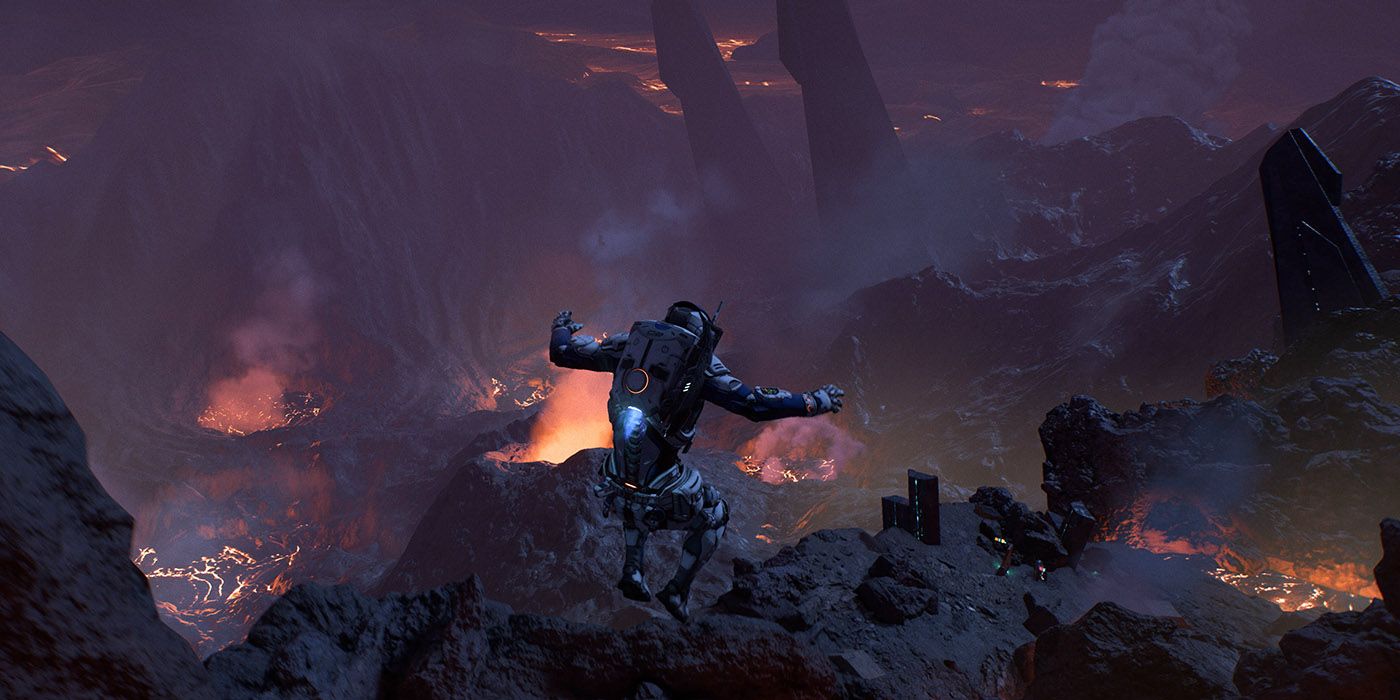 This immediately limited the game's potential, with the original idea of procedurally-generated worlds stopped in its tracks in favor of a number of other planets, some of which feeling devoid of the life that the Mass Effect franchise had built upon. Whereas Mass Effect 2 and 3 in particular had given the impression of a vibrant universe, the Andromeda of the 2017 release was dead. Part of this was, admittedly, by design, but it still came as a shock to the system, particularly when there was little to fill the void.Related: Mass Effect: The 15 Most Cringe-Inducing MomentsAlthough the game's developers did release some serious updates to fix the game's technical issues, once again the problems with Andromeda were far more extensive than simple animation bugs. Big sacrifices had been made throughout the game's chaotic development, and this clearly compounded into the disjointed final game that players received.Rather than help bring Mass Effect into a new generation, instead the game may have killed the property altogether. EA confirmed that the game's heavily-suggested single player DLC would not be created, and that Mass Effect was going on an indefinite hiatus. What was once an essential part of any gamer's library was now something to easily discard.
This immediately limited the game's potential, with the original idea of procedurally-generated worlds stopped in its tracks in favor of a number of other planets, some of which feeling devoid of the life that the Mass Effect franchise had built upon. Whereas Mass Effect 2 and 3 in particular had given the impression of a vibrant universe, the Andromeda of the 2017 release was dead. Part of this was, admittedly, by design, but it still came as a shock to the system, particularly when there was little to fill the void.Related: Mass Effect: The 15 Most Cringe-Inducing MomentsAlthough the game's developers did release some serious updates to fix the game's technical issues, once again the problems with Andromeda were far more extensive than simple animation bugs. Big sacrifices had been made throughout the game's chaotic development, and this clearly compounded into the disjointed final game that players received.Rather than help bring Mass Effect into a new generation, instead the game may have killed the property altogether. EA confirmed that the game's heavily-suggested single player DLC would not be created, and that Mass Effect was going on an indefinite hiatus. What was once an essential part of any gamer's library was now something to easily discard.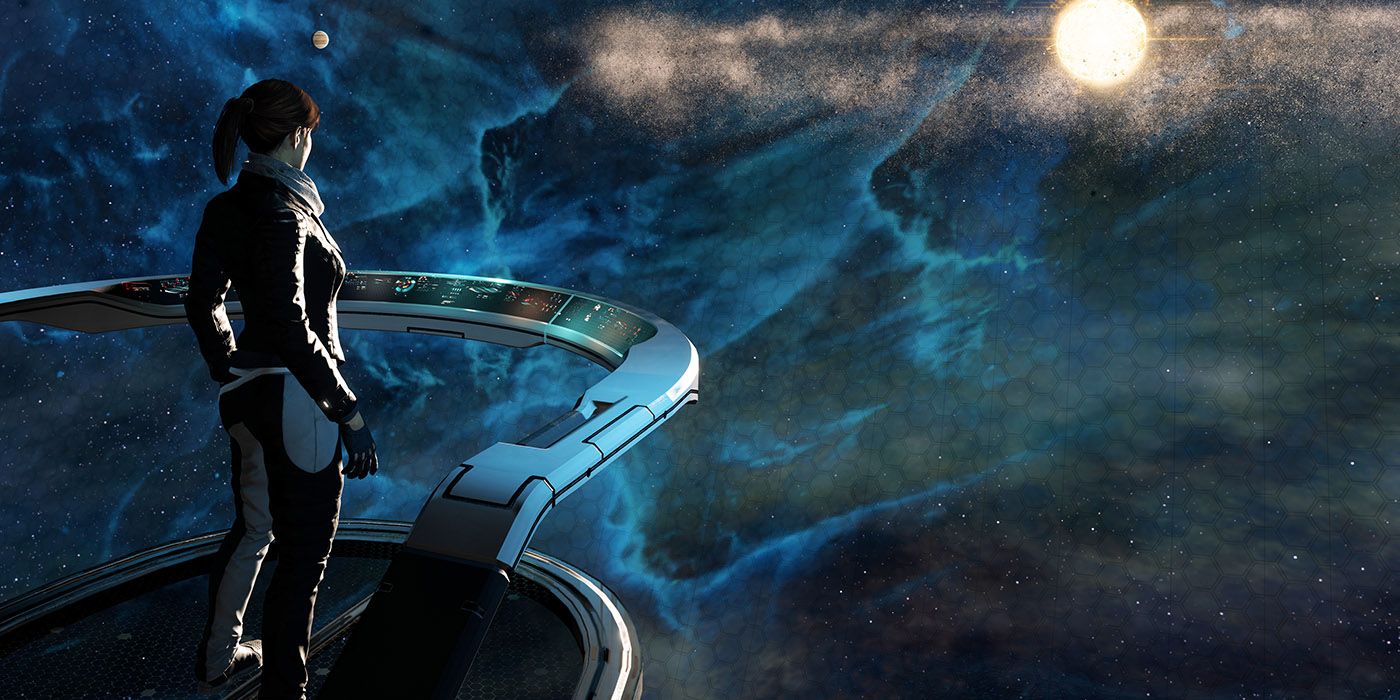 When it comes down to it, however, EA almost set up Andromeda to fail. The game should have received a massive focus from both the publisher and the main BioWare studio, but EA's insistence that people don't like linear single player games had clearly already taken root. Instead, BioWare Edmonton has been hard at work on Anthem, a game that seems much closer to Destiny than to the developer's prior works in the realm of the RPG. Mass Effect was supposed to be a powerhouse of an intellectual property, so why was Andromeda so disregarded?Whatever the reasons, it meant that Mass Effect has likely gone out not with a bang, but with a whimper. The franchise shuffled tentatively into a new era, only to stumble with no-one to help it back to its feet. EA may resurrect the series at some point, but should Anthem turn out to be a success then it would likely be without the clout of BioWare behind it.There are lessons to be learned here, of course, and fans of other EA franchises will be hoping that the publisher learns from what went wrong in 2017. Emphasizing the development of a strong core game before business model implementation goes a long way, as does treating beloved properties with the care they deserve. If 2018 is to be a better year for the publisher, then it will need to make up for its recent failures, but that's unlikely to mean much to Mass Effect and Need For Speed fans.More: Every Mass Effect Squadmate (Including Andromeda), Ranked Worst To Best
When it comes down to it, however, EA almost set up Andromeda to fail. The game should have received a massive focus from both the publisher and the main BioWare studio, but EA's insistence that people don't like linear single player games had clearly already taken root. Instead, BioWare Edmonton has been hard at work on Anthem, a game that seems much closer to Destiny than to the developer's prior works in the realm of the RPG. Mass Effect was supposed to be a powerhouse of an intellectual property, so why was Andromeda so disregarded?Whatever the reasons, it meant that Mass Effect has likely gone out not with a bang, but with a whimper. The franchise shuffled tentatively into a new era, only to stumble with no-one to help it back to its feet. EA may resurrect the series at some point, but should Anthem turn out to be a success then it would likely be without the clout of BioWare behind it.There are lessons to be learned here, of course, and fans of other EA franchises will be hoping that the publisher learns from what went wrong in 2017. Emphasizing the development of a strong core game before business model implementation goes a long way, as does treating beloved properties with the care they deserve. If 2018 is to be a better year for the publisher, then it will need to make up for its recent failures, but that's unlikely to mean much to Mass Effect and Need For Speed fans.More: Every Mass Effect Squadmate (Including Andromeda), Ranked Worst To Best

